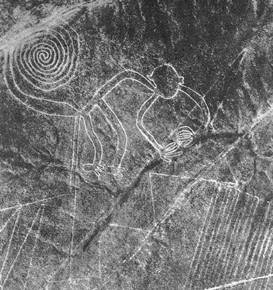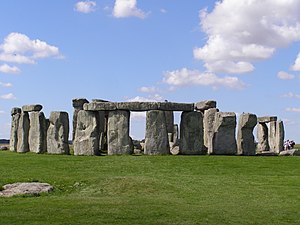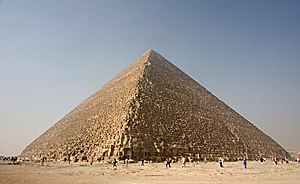Start the telethon. There may never be a cure, but your dollars could offer hope of extracting clutter from my mind. Contributors will, of course, be eligible to receive individual copies of my work.
Now, one drawback to attempting to plumb the depths of my mind is that it's a fertile ground for many imaginings. As a result, it seems there's always more to find there. I don't truly consider that to be a problem, but it is if I want to clean it out. There's no knowing to what limits things may reach in there.
 That shouldn't really come as a surprise, as we are frequently told that there are limits to neither our own imaginations nor the possibilities that might be achieved by the application of our faculties. We can't know everything. Some say we can't be truly certain of knowing anything. Well, sounds like there are a few limits after all.
That shouldn't really come as a surprise, as we are frequently told that there are limits to neither our own imaginations nor the possibilities that might be achieved by the application of our faculties. We can't know everything. Some say we can't be truly certain of knowing anything. Well, sounds like there are a few limits after all.It baffles me when people, often scholarly types who should be especially open to new ideas, will do all they can to destroy any theories that don't fit their worldview as though keeping deadly weeds from a delicate garden or a foreign predator from a balanced ecosystem. The Big Bang Theory is still just an unproven theory. Sure, it's a commonly accepted idea, but there are a lot of cosmological findings that don't fit the Big Bang model of the universe. Many proponents of Big Bang would just like to sweep aside those...messy bits. I think that a lot of people don't like not knowing things...or admitting they don't know things, but those devilish details don't stop existing just because you might wish it so. That would be another limit.
In matters of less than cosmic significance, we have plenty of mysterious mysteries right here on Earth. The Discovery and History channels appear to thrive not only on showing what's known, but on offering speculation about the great gaps in the recorded knowledge of mankind's past. Sadly, many representatives of the mainstream scientific community are quick to dismiss as "pseudoscience" any such speculations that do not fit into the framework of what is already believed to be known. That doesn't sound like the sort of thinking that's likely to greatly advance anyone's knowledge. Hell, what science hasn't started out with a branding of "pseudoscience" until the old guard had put it through a thorough hazing? Dues must be paid, I suppose.
I'm particularly fond of the programs that focus on mythologies and ancient history. That said, it should come as little shock that I've spent many hours with cable programming such as Clash of the Gods, Stargate SG-1 and Ancient Aliens. Before they came along, I used to ask the same sorts of questions these shows present. I was a weird kid who wondered why there are pyramids all around the world, supposedly built by primitive cultures who never met. When I'd read Bible passages about sky chariots and dragons and angels, I'd wonder what those people were seeing. I know I'm not alone or those TV shows wouldn't exist. The ideas aren't new. Go check some original Star Trek and see.
I had a very amusing time talking about dinosaurs and prehistoric flying snakes with a seven-year-old. Unfortunately, I was the one on the side of possibilities and he was already certain that flying snakes couldn't have ever existed. Why not? Simply because he had never seen one. Feathered serpents figure prominently in Meso-American lore (Quetzalcoatl, Kukulcan) and the book of Genesis indicates that serpents crawling on their bellies was an enforced punishment and not their original method of travel. Both sources also tell us the serpent could speak. Neither suggests a demonic nature nor the presence of legs, though both are typically assumed. Could I readily accept that the serpent was part of an older lore that was made a villain by a newer religion? Sure, just as I can swallow the concept of a flying snake more easily than a talking one, but I'm not going to bark at a crowd that I know every detail of what did or didn't occur with certainty just because I like the sound of one particular version over the others. That's the sort of misbehavior is how religions get started.
I don't say I know the what and when and why and who and how the heck of the Nazca Lines...

...or Stonehenge...

...or the Sphinx...

 ...or even a single pyramid.
...or even a single pyramid.I can't answer the unknowns of Atlantis or dropa stones or scores of chimeric creatures
 (the Sphinx comes to mind again--it used to ask riddles and eat people, but where'd it come from? Were these talking predators common?) or dinosaurs or lost civilizations or much of anything beyond a few thousand years ago. I don't have a way-back machine. We're guessing about that stuff and people who want to shut the door to speculation while claiming certainty are just overcome with arrogance. Take the weird stuff out of the back rooms and put them on display with a little sign that says "Hey, we don't know what it is either, but it was found under thirty feet of sand with markings no one can read and it looks like a computer. Share your best guess."
(the Sphinx comes to mind again--it used to ask riddles and eat people, but where'd it come from? Were these talking predators common?) or dinosaurs or lost civilizations or much of anything beyond a few thousand years ago. I don't have a way-back machine. We're guessing about that stuff and people who want to shut the door to speculation while claiming certainty are just overcome with arrogance. Take the weird stuff out of the back rooms and put them on display with a little sign that says "Hey, we don't know what it is either, but it was found under thirty feet of sand with markings no one can read and it looks like a computer. Share your best guess."

I don't know that alien astronauts didn't come here fifteen thousand years ago...

...or yesterday and every single day in between to work on genetics or social engineering or vacations and alien pranks. Maybe they've been doing research for their own writing and doing incidental worldbuilding. Neither does anyone else who doesn't have hard evidence to the contrary.
Face it: unless you've been there, you can't even be certain Tahiti exists. Until you have personal confirmation, it's just a collective speculation, though it sounds like a nice one. In fact, it sounds like some sort of Utopia. Maybe it's not real after all. Maybe I should ask my alien friends. Who knows? Maybe my next novel can give them a good laugh.
In the meantime, it's OK to know we don't know things. It was once considered the starting point of wisdom. It certainly gives us plenty to do. We get to exercise our curiosity, wondering what's over the next horizon, letting our inner four-year-old ask why ad infinitum just to see where it gets us and enjoy the ride at the same time. Learning is a process, a journey, apparently without a fixed goal. It just teases us like some endlessly unwrappable gift that lets us peel away mysteries while revealing something more compelling underneath each one. To me, that's pretty cool all by itself.
No comments:
Post a Comment